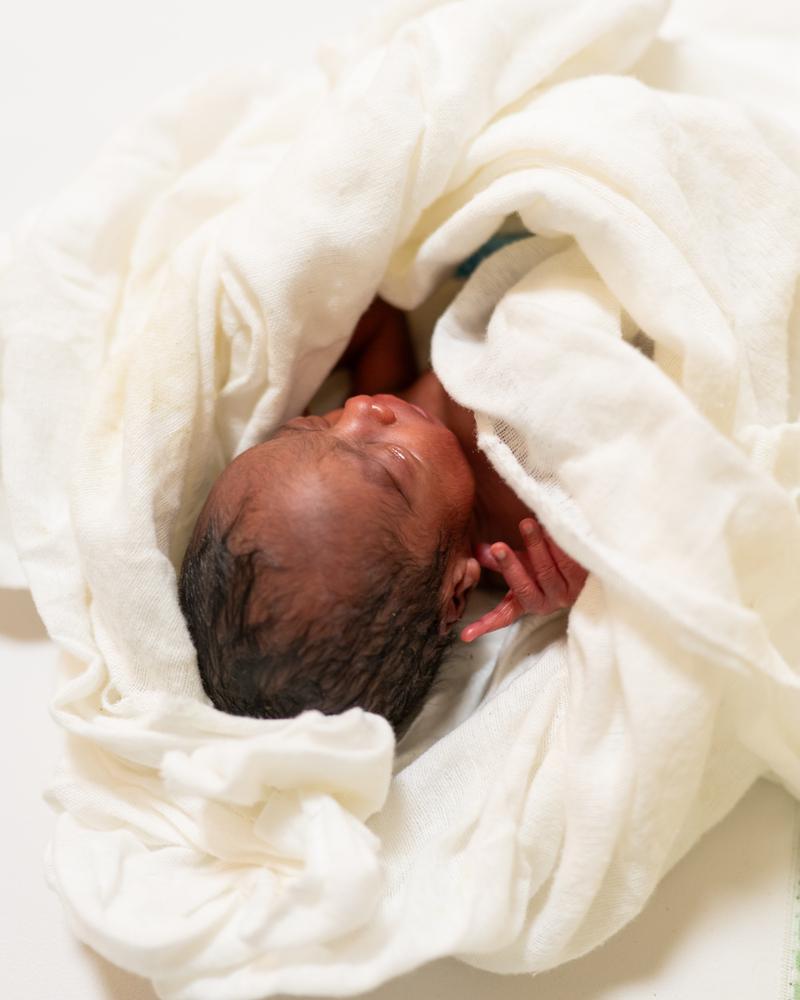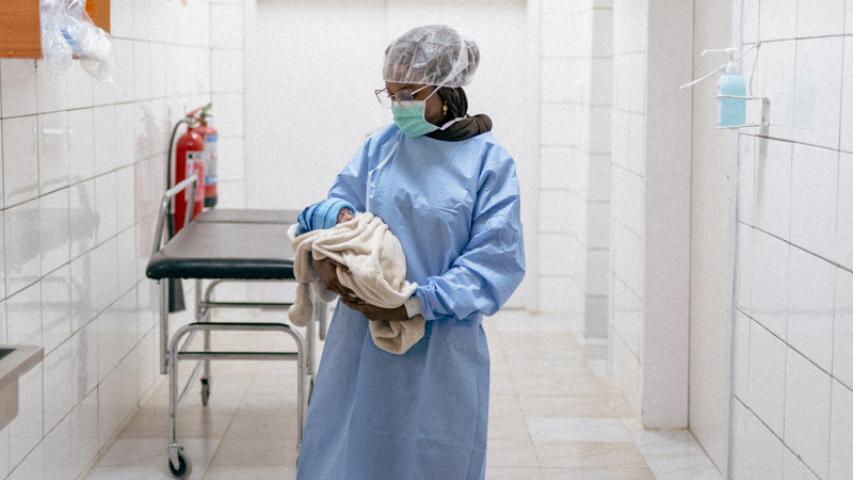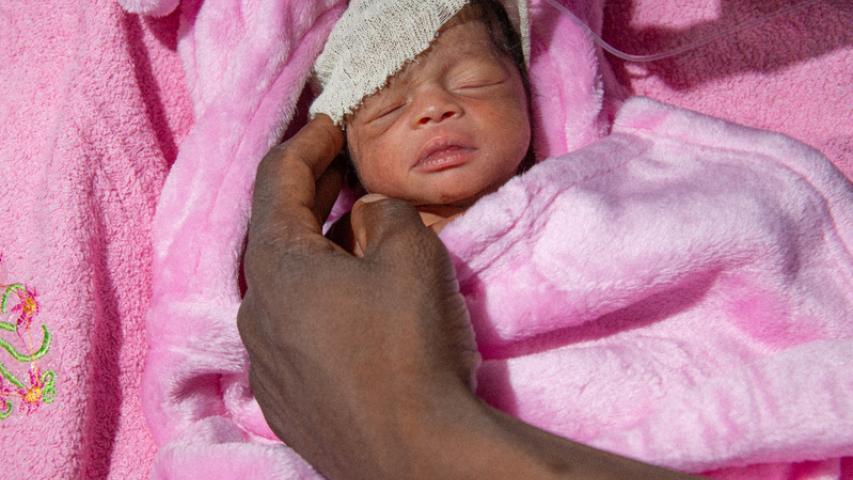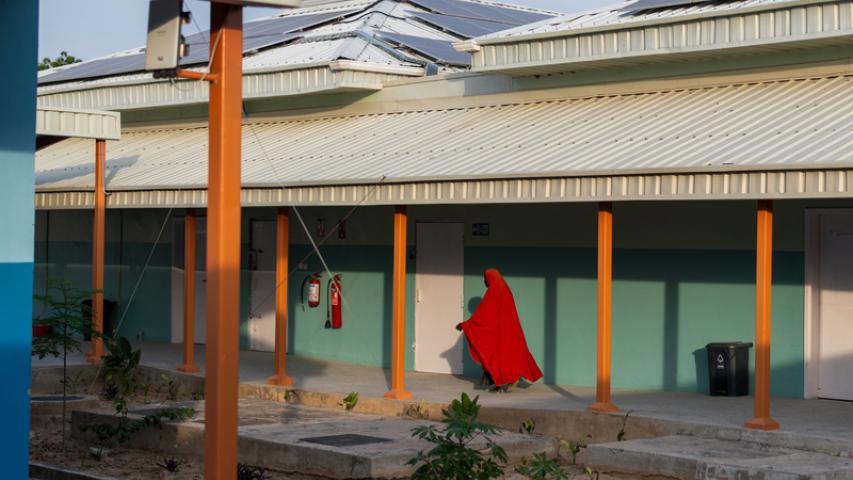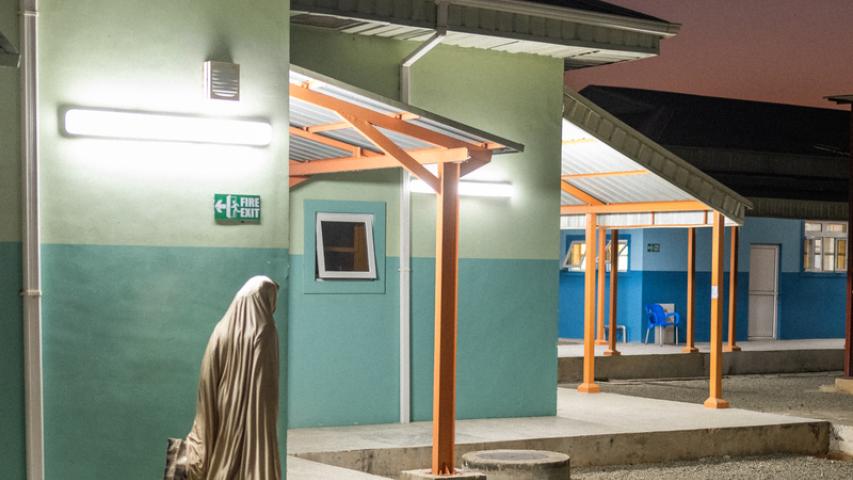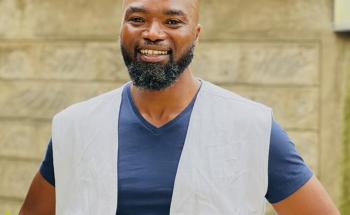Alima Mustafa nurtures her sister’s baby girl in a kangaroo pouch, giving her extended skin-to-skin contact to improve her chance of survival. Her niece, who was just 1.15kg, was one of the babies born prematurely at 29 weeks and has just been discharged from the neonatal intensive care unit.
Alima’s sister passed away a day after giving birth, which is why Alima is instead providing care to her niece.
Thanks to the medical care provided at the MSF-built comprehensive emergency obstetric and newborn care facility at the Nilefa Keji Hospital in Maiduguri, Borno state, the little girl has been carefully nursed, and her critical vitals such as oxygen levels have been monitored round the clock. This hospital is being run in collaboration with the state ministry of health.
After spending the first 2 weeks of her life in the neonatal intensive care unit, she has now been discharged to the step-down unit, where she is being nurtured in a kangaroo pouch.

This technique warms the babies, helps maintain their emotional balance, reduces newborn illnesses, and improves their chances of survival. Babies born at such an early gestation and weighing so little, can experience serious, potentially vital health risks.
Maimuna Adam gave birth at just 32 weeks; her baby weighed less than two kgs. Her baby is being looked after in the neonatal intensive care unit of the new comprehensive emergency obstetric and newborn care facility at the Nilefa Keji Hospital in Maiduguri Borno state.
This new facility was opened at the beginning of June this year and is still in its early phase, meaning that there are just 20 adult beds and ten neonatal beds. Despite this, in early October there were 13 babies in the neonatal intensive care unit, additional space was made to accommodate the extra babies, many of which were premature. So far, there have been 58 premature babies in the neonatal intensive care unit since the facility opened.
I’ve seen it help them gain weight quickly and digest well. The staff come regularly to check on my babies, and all the care is free. I’m very grateful.Jeanisse Ngaïdama, a mother who gave birth to premature twins.
Jeanisse Ngaïdama, 23, gave birth to premature twins on October 11 in the MSF-supported specialized unit at the Centre Hospitalier Universitaire Communautaire in Bangui, the capital of the Central African Republic.
"I didn’t know such a service existed," she explains. "And I’m so grateful it does, because I needed skilled professionals to save my babies. I’ve been here for over a month now, and thanks to the care they’ve received, they’ve reached a normal weight."
Like the other mothers in this unit specialising in the care of premature infants, Jeanisse uses the "Kangaroo Method" with her babies, an effective approach that involves holding premature newborns skin-to-skin for up to 24 hours a day and feeding them exclusively at the breast. This extended skin-to-skin contact warms the babies, helps maintain their emotional balance, reduces newborn illnesses, and improves their chances of survival.
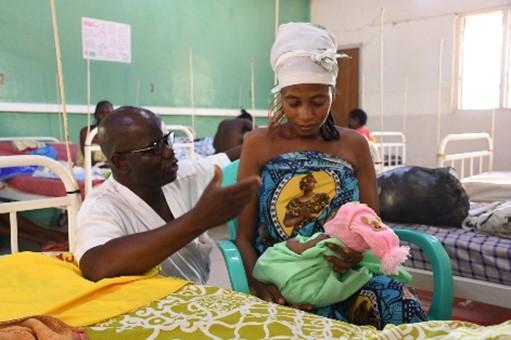
"I’ve seen it help them gain weight quickly and digest well," she says. "The staff come regularly to check on my babies, and all the care is free. I’m very grateful."
Since January 2023, more than 3,100 premature babies have been treated with MSF’s support in this specialized unit—the only one in Bangui to offer such advanced care free of charge.
